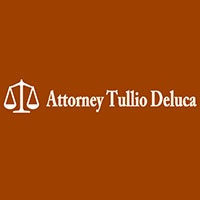Susquehanna Estate Lawyer, Pennsylvania
Sponsored Law Firm
-
 x
x

Click For More Info:
-
Ryan, Morton & Imms, LLC
220 West Gay Street West Chester, PA 19380» view mapEstate and Business Law The Lawyers on Your Side
We are the lawyers you would like to have on your side in a legal matter. Please contact us should you need legal advice or assistance.
610-430-1425
Jeffrey W. Nepa
✓ VERIFIEDNepa & McGraw, P.C. is an experienced law firm based in northeastern Pennsylvania that provides individuals, families, and businesses with an extensiv... (more)
Joseph S. Toczydlowski
✓ VERIFIEDJoseph S. Toczydlowski is a Pennsylvania attorney with 20 years of experience. Joseph is a graduate of Scranton Prep. He obtained a Bachelor of Sc... (more)
Tullio DeLuca
✓ VERIFIEDTullio DeLuca was admitted to bar in 1990 in Pennsylvania, US District Court, Middle, Eastern and Western Districts of Pennsylvania. Attorney DeLuca r... (more)
P. Timothy Kelly
✓ VERIFIEDP. Timothy Kelly is a practicing lawyer in the state of Pennsylvania handling personal injury and criminal defense matters.
 Richard H. Morton West Chester, PA
Richard H. Morton West Chester, PA AboutRyan, Morton & Imms, LLC
AboutRyan, Morton & Imms, LLC




